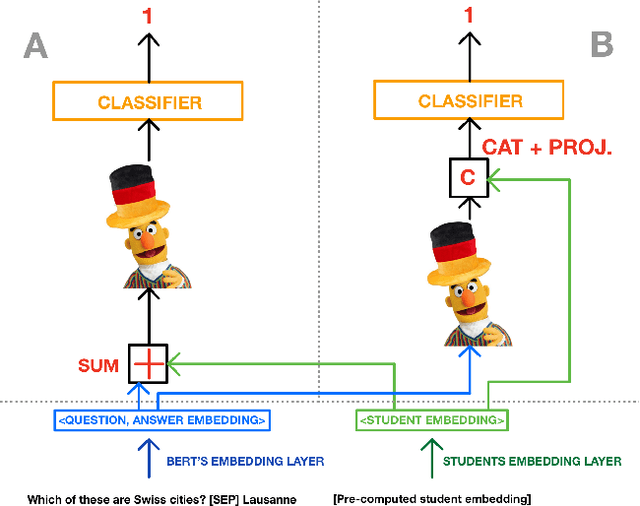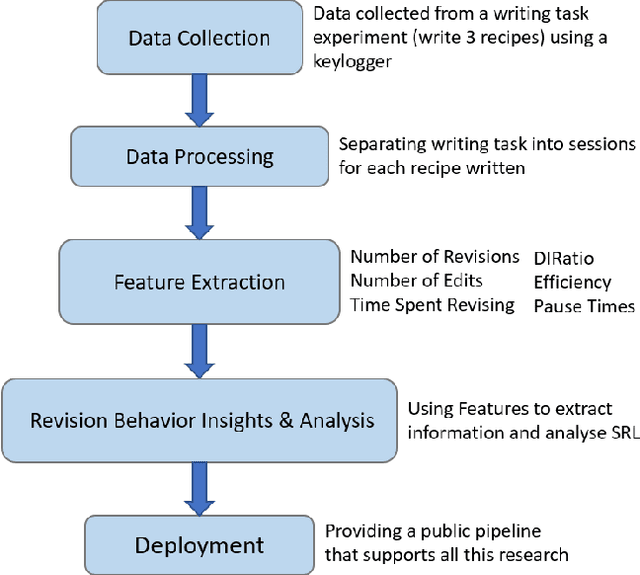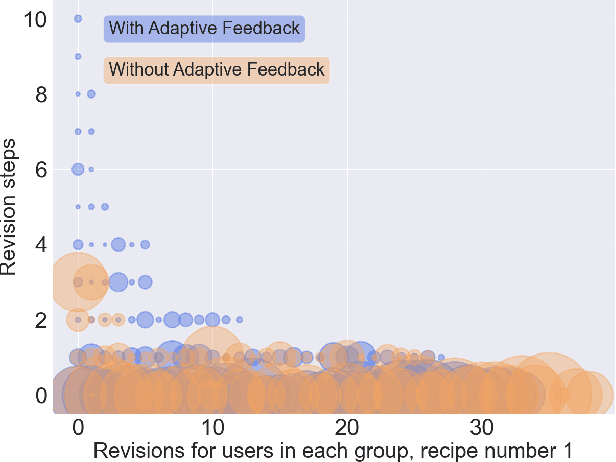Paola Mejia-Domenzain
Student Answer Forecasting: Transformer-Driven Answer Choice Prediction for Language Learning
May 30, 2024



Abstract:Intelligent Tutoring Systems (ITS) enhance personalized learning by predicting student answers to provide immediate and customized instruction. However, recent research has primarily focused on the correctness of the answer rather than the student's performance on specific answer choices, limiting insights into students' thought processes and potential misconceptions. To address this gap, we present MCQStudentBert, an answer forecasting model that leverages the capabilities of Large Language Models (LLMs) to integrate contextual understanding of students' answering history along with the text of the questions and answers. By predicting the specific answer choices students are likely to make, practitioners can easily extend the model to new answer choices or remove answer choices for the same multiple-choice question (MCQ) without retraining the model. In particular, we compare MLP, LSTM, BERT, and Mistral 7B architectures to generate embeddings from students' past interactions, which are then incorporated into a finetuned BERT's answer-forecasting mechanism. We apply our pipeline to a dataset of language learning MCQ, gathered from an ITS with over 10,000 students to explore the predictive accuracy of MCQStudentBert, which incorporates student interaction patterns, in comparison to correct answer prediction and traditional mastery-learning feature-based approaches. This work opens the door to more personalized content, modularization, and granular support.
Understanding Revision Behavior in Adaptive Writing Support Systems for Education
Jun 17, 2023



Abstract:Revision behavior in adaptive writing support systems is an important and relatively new area of research that can improve the design and effectiveness of these tools, and promote students' self-regulated learning (SRL). Understanding how these tools are used is key to improving them to better support learners in their writing and learning processes. In this paper, we present a novel pipeline with insights into the revision behavior of students at scale. We leverage a data set of two groups using an adaptive writing support tool in an educational setting. With our novel pipeline, we show that the tool was effective in promoting revision among the learners. Depending on the writing feedback, we were able to analyze different strategies of learners when revising their texts, we found that users of the exemplary case improved over time and that females tend to be more efficient. Our research contributes a pipeline for measuring SRL behaviors at scale in writing tasks (i.e., engagement or revision behavior) and informs the design of future adaptive writing support systems for education, with the goal of enhancing their effectiveness in supporting student writing. The source code is available at https://github.com/lucamouchel/Understanding-Revision-Behavior.
 Add to Chrome
Add to Chrome Add to Firefox
Add to Firefox Add to Edge
Add to Edge